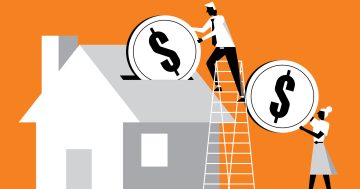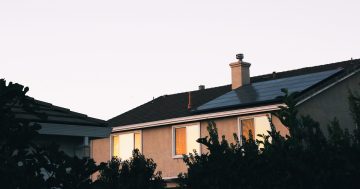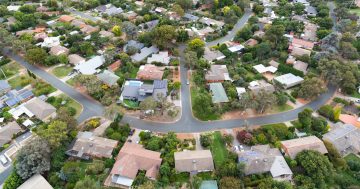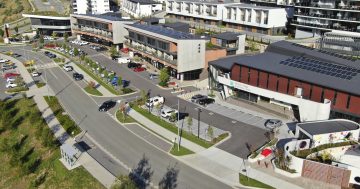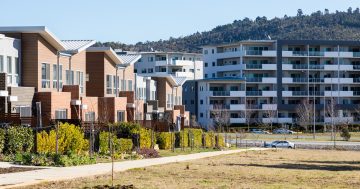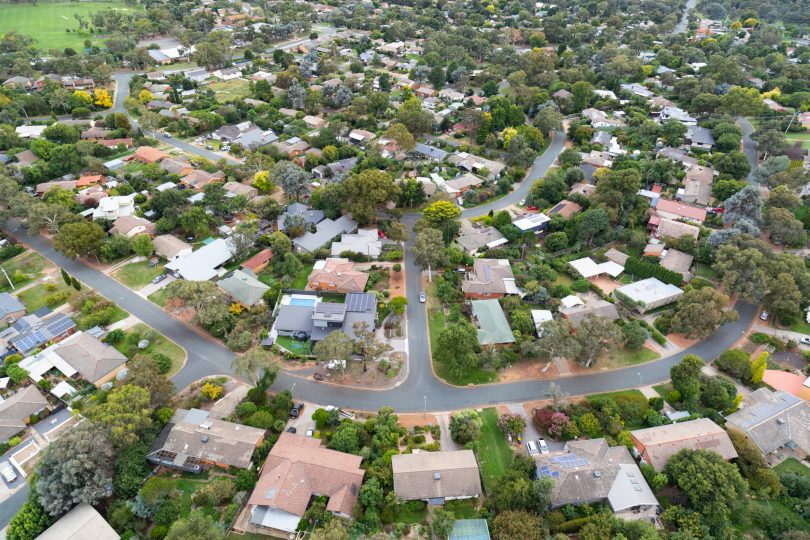
Residential vacancy rates are currently extremely low in the ACT – sitting around 0.5 per cent. Photo: Michelle Kroll.
It’s no secret that Canberra’s rental market isn’t pretty for those trying to find a place to live. Investors warn that’s only going to get uglier if more and more of them take the easy option – sell up and get out.
Rising costs like rates, land tax and maintenance have to be balanced against the lure of a high-priced sale in a hot market.
Take the cases of June* and Sue* as examples.
June has owned a unit in Canberra for five years. In that time, she says “every cost has gone up”.
It’s got so bad that she’s seriously considering jumping ship although, as a self-funded retiree, she worries about whether a “pile of capital” would be as secure as her current regular rental income is.
The costs June is referring to include rates, land tax as well as bills and maintenance on the property, which is increasing as it ages.
June has thus far been reluctant to pass the costs on in the form of a rent increase because she doesn’t want to lose good tenants. She’s been charging around $400 a week for the townhouse since she bought it in 2017.
“There’s no point having the place empty as that’s time and money that you will never get back,” June said. “Also, they are very nice people who have always looked after the place and allowed access for tradespeople to do repairs.”
As a ‘mum and dad’ investor, June says it’s vital she and her tenants have a good relationship, especially as she doesn’t have a property manager working as a go-between.
June hasn’t yet decided if she will go ahead and sell the property but she is monitoring things – including interest rate hikes – very closely.
She is worried about what will happen to tenants just like hers if the property isn’t bought by another investor and it reduces the stock of rental accommodation.
That’s a phenomenon real estate agents say they are starting to see more and more frequently.

Hannah Gill is the Real Estate Institute ACT President and Director of Property Management for The Property Collective. Photo: File.
Real Estate Institute ACT president Hannah Gill said investors were bailing out of the market to realise massive capital gains instead.
She’s seen investors blaming legislative changes, land tax and the looming prospect of having to meet minimum energy efficiency standards as their reasons for selling up.
One investor who sold up a few years ago was Sue.
She let her property go in 2018 after 17 years of copping increases in land tax and other costs and, in her words, “saw the writing on the wall” for what was coming.
Much like June, Sue purchased a property so she could have another source of income in retirement.
But in the few years before Sue sold it, she estimated her land tax payments increased by about 20 per cent. According to official ACT Government figures, she might not be far off.
Pre-pandemic, land taxes increased at about 4.7 per cent per annum on average although the last Budget, handed down by the local government in October 2021, foreshadowed that land taxes would increase by 6.1 per cent over 2021-22 to 2024-25
Also like June, Sue never raised the rent for her tenants. She said it was simply a case of acknowledging that her tenants would not have been able to afford the difference.
She also valued keeping “long-term, good tenants” who looked after the place and treated it like it their own home.
Renting in Canberra is expensive and, with vacancy rates around 0.5 per cent, it’s also difficult.
The ACT Government has committed to looking into what can be done – including the possibility of a vacancy tax and a better understanding of the impact of short-term rental platforms like Airbnb.
The government has also proposed introducing minimum standards for rental properties, banning no-cause evictions and regulating or prohibiting rent bidding.
But June isn’t convinced making life harder for investors is going to help.
“I’m very perturbed that the changes in Canberra – if the government makes it harder and more expensive for them – are very short-sighted,” she said. “Do they want landlords to get skittish and sell their properties?
“We’re mum and dad investors doing good things, so leave us alone.”
*Names have been changed.













